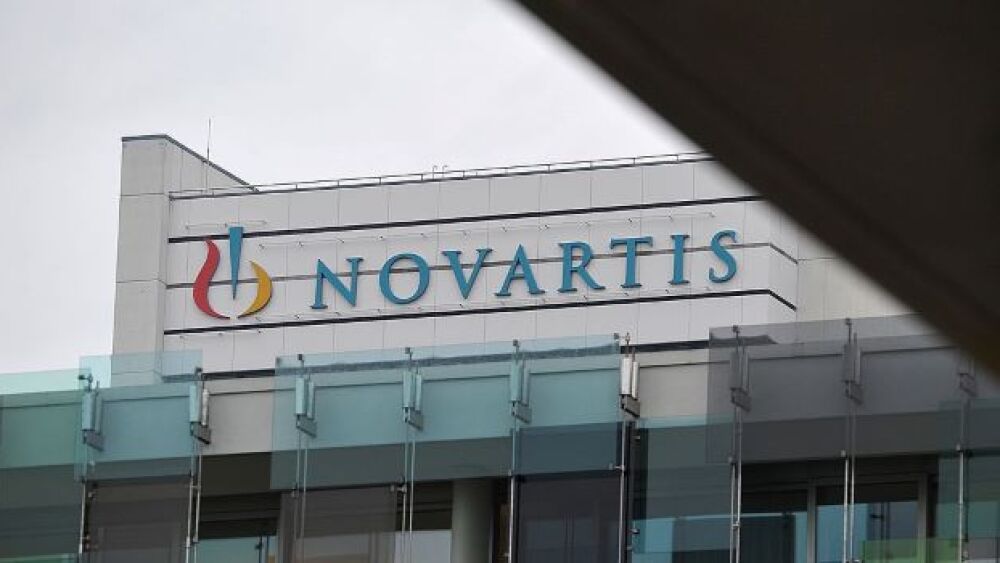Two patients receiving Novartis’ SMA gene therapy Zolgensma have died from acute liver failure, the company reported Thursday.
Harold Cunningham/Getty Images
Novartis’ gene therapy for spinal muscular atrophy (SMA) has had a complicated history, of which there is a new chapter. Two patients receiving the therapy have died from acute liver failure, the company reported Thursday.
“While this is important safety information, it is not a new safety signal and we firmly believe in the overall favorable risk/benefit profile of Zolgensma, which to date has been used to treat more than 2,300 patients worldwide across clinical trials, managed access programs and in the commercial setting,” Novartis stated in a press release.
Novartis reported that the children developed acute liver failure about five to six weeks after receiving Zolgensma and about 1-10 days after initiation of corticosteroid taper. The corticosteroids are used to help manage risk from the therapy. The cases were in Russia and Kazakhstan.
The company indicated it has notified regulators in all countries where the therapy is approved and will inform healthcare providers where it is allowed. The company also plans to update the Zolgensma label to include mention of the deaths.
SMA is a severe neuromuscular disease resulting from a mutation in the SMN1 gene, which codes for SMN, a protein vital to motor neuron function. The disease is marked by loss of motor neurons, which causes progressive muscle weakness and paralysis. Rare, it occurs in about one in 10,000 live births. Type 1 is lethal and typically results in death by the age of two years.
Zolgensma (onasemnogene abeparvovec-xioi) uses a viral vector to deliver a copy of the human SMN gene. In 2019, the company reported two deaths from two separate clinical trials. In that period, one patient died from respiratory failure, a common cause of death from the disease, and the investigation found the death was unrelated to the therapy. The second death in a 6-month-old patient with Type 1 SMA in Europe was from a severe respiratory infection followed by neurological complications.
The therapy was approved by the U.S. Food and Drug Administration in May 2019. At the time, it was the second gene therapy for an inherited disease to be approved by the agency. There are two other approved treatments for SMA, Biogen’s Spinraza (nusinersen) and Roche’s Evrysdi (risdiplam). Prior to the approval of these drugs, SMA was typically a death sentence, with most children dying by the age of two.
Zolgensma’s risk of liver damage is mentioned in the FDA’s product labeling, which advises physicians to evaluate liver function prior to infusing the therapy and to dose steroids before and after to control lever enzyme levels. Two earlier cases of acute liver failure were reported after treatment, but the children were treated with steroids and improved.
Systemic gene therapies present a concern for liver damage. Gene therapies typically require infusing billions of copies of an inactivated virus, typically an adeno-associated virus (AAV), that carries a functional replacement gene. In systemic therapies, these typically are processed in the liver, which is why concerns over liver damage are elevated.
It’s also why the earliest successful gene therapies have been in ophthalmic diseases, as the therapy is injected directly into the eye. The first approved gene therapy was Spark Therapeutics’ Luxturna (voretigene neparvovec) for a rare, genetic form of blindness.
Astellas Pharma has had four deaths due to liver abnormalities in clinical trials for its experimental gene therapy, AT132. The trial is evaluating the therapy for X-linked myotubular myopathy, a rare and fatal neuromuscular disease. The fourth death was in September 2021, with three previous deaths occuring in May, June and August of 2020.
In April, the company abandoned three gene therapy programs: AT702, AT751 and AT753 for Duchenne muscular dystrophy. It also revised the eligible treatment population and any future product label for AT132.
In September 2021, the FDA held a meeting with gene therapy experts to discuss the risks of these emerging treatments and propose ways to make them safer. Although there were a few suggestions, the group stopped short of suggesting slowing or halting research into the field, including limiting doses.





